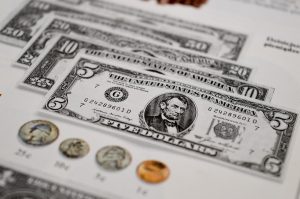Forex trading, also known as foreign exchange trading, is the buying and selling of currencies on a global market. It is the largest and most liquid market in the world with an estimated daily turnover of $5 trillion. Forex trading involves individuals, financial institutions, and governments who exchange currencies for various reasons, such as tourism, investment, and commerce.
Forex trading is done through a network of global banks, brokers, and traders who buy and sell currencies 24 hours a day, five days a week. The forex market is decentralized and operates across time zones, making it possible for traders to participate at any time.
Currencies are traded in pairs, with the first currency being the base currency and the second currency being the quote currency. For example, the EUR/USD pair represents the euro as the base currency and the US dollar as the quote currency. The exchange rate between the two currencies represents the amount of quote currency needed to purchase one unit of the base currency.
Forex trading offers traders the opportunity to profit from the fluctuations in currency prices. Traders can buy a currency pair at a lower price and sell it at a higher price, or sell a currency pair at a higher price and buy it back at a lower price.
Forex trading is risky and requires education, experience, and discipline. Traders must understand technical and fundamental analysis, risk management, and trading psychology to succeed in the forex market.
Technical analysis involves using charts and indicators to analyze past price movements and identify patterns and trends. Fundamental analysis involves analyzing economic and political events that affect currency prices. Risk management involves developing a trading plan, setting stop-loss orders, and managing leverage to minimize losses. Trading psychology involves managing emotions such as fear and greed and maintaining discipline in following a trading plan.
Forex trading offers several advantages over other financial markets. The forex market is the most liquid market in the world, making it easy for traders to enter and exit positions. The forex market also offers high leverage, which allows traders to control large positions with a small amount of capital. The forex market is also open 24 hours a day, five days a week, making it possible for traders to participate in the market at any time.
Forex trading also has some disadvantages. The forex market is highly volatile, and prices can change rapidly, making it difficult to predict market movements. The use of leverage can also magnify losses, making it important for traders to manage risk carefully. Forex trading also requires discipline and emotional control, which can be challenging for some traders.
In conclusion, forex trading is the buying and selling of currencies on a global market. It is the largest and most liquid market in the world, offering traders the opportunity to profit from fluctuations in currency prices. Forex trading requires education, experience, and discipline to succeed, and traders must understand technical and fundamental analysis, risk management, and trading psychology. While forex trading offers several advantages, it also has some disadvantages, making it important for traders to carefully manage risk and maintain emotional control.





